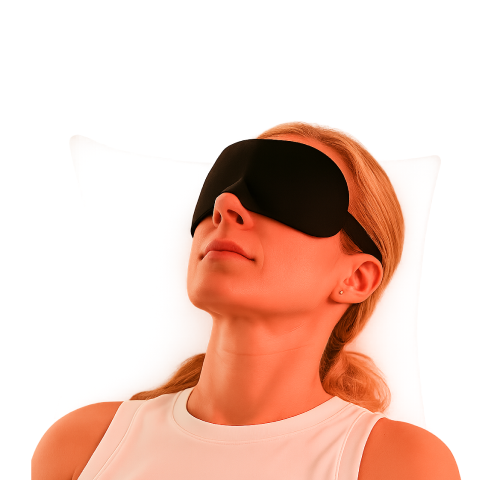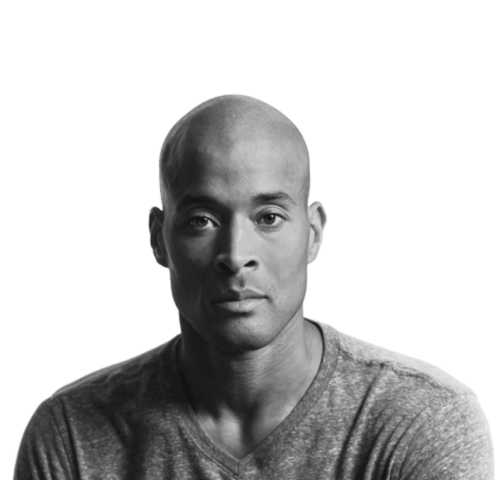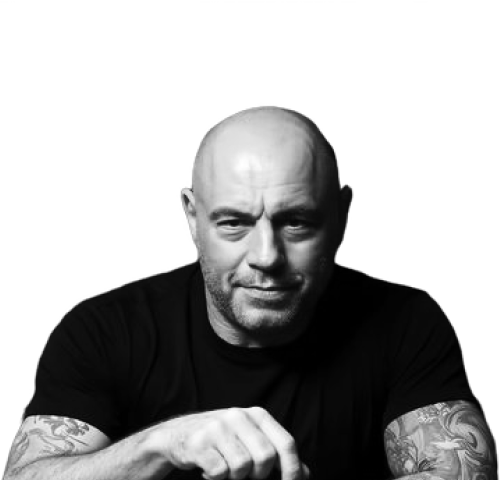The Red Light Therapy Guide

Everything You Need To Know
Red light therapy (RLT) utilizes low-wavelength red light to support healing and improve various health conditions, making it a sought-after treatment for skin rejuvenation, muscle recovery, inflammation reduction, and overall wellness enhancement. Its popularity has surged due to clinical trial backing and an increasing preference for natural, non-invasive health solutions. RLT's appeal lies in its simplicity and the absence of significant side effects, attracting interest from healthcare providers, athletes, and those focused on wellness. Let's have a closer look at red light therapy.
- Last Updated: July 15, 2025
- The Science Behind Red Light Therapy
- RLT VS Other Forms of Light Therapy
- Red Light Therapy for Sleep
- Red Light Treatment for Hair Growth
- Red Light Remedy for Weight Loss
- Red Light Remedy for Brain
- RLT and Fitness
- All You Need To Know About FlexBeam
- Best Time To Do Red Light Treatment
- Investing in a RLT Home Device
- Safety Precautions
-
-

The Science Behind Red Light Therapy
At its core, this therapy involves exposing the body to low levels of red or near-infrared light. Here’s what makes it work:
Wavelengths:
The therapy uses specific wavelengths of light typically between 630 to 850 nanometers). These wavelengths have the unique ability to penetrate deep into the tissues and improve skin health.
Cellular Level Impact:
When cells absorb this light, it triggers a series of biological processes that enhance cell performance and health.
How Does RLT Benefit Cells?
Here are three ways in which this therapy benefits the cells;
- Boosts Mitochondrial Function:
The mitochondria, often called the powerhouse of the cell, play a crucial role in short term energy production. Red light stimulates the mitochondria, leading to increased production of adenosine triphosphate (ATP), the energy currency of the cell. This boost in energy supports cells in repairing themselves and functioning optimally.
- Reduces Oxidative Stress:
Oxidative stress occurs when there’s an imbalance between free radicals and antioxidants in your body. RLT helps balance this, promoting better cellular health and reducing the risk of damage.
- Increases Circulation:
The therapy encourages the formation of new capillaries, which increases blood circulation. Better circulation means more oxygen and nutrients are delivered to the cells, enhancing their health and vitality.
The Science in Action: From Theory to Therapy
- Pain Relief:
By reducing inflammation and increasing circulation, RLT can alleviate pain associated with conditions like arthritis, muscle spasms, and neck pain.
- Skin Rejuvenation:
It helps in collagen production, essential for skin elasticity and firmness, addressing issues like wrinkles, fine lines, and scars.
- Wound Healing:
Enhanced cellular function and increased circulation speed up the body’s natural healing processes.
- Muscle Recovery:
Athletes use thistherapy to reduce recovery time and inflammation after intense workouts.
-
RLT vs Other Forms of Light Therapy
When we talk about improving health and wellness through light, it’s not just one color that does all the work. Light therapy comes in many forms, each with its own set of benefits. Here’s how red light therapy stands out from the crowd:
- Red Light Therapy vs. Blue Light Therapy
Red Light Therapy devices like FlexBeam uses wavelengths in the red to near-infrared spectrum (600nm to 1000nm). It’s known for its deep tissue penetration, which helps improve cellular health, promotes healing, and reduces inflammation.
Blue Light Therapy, on the other hand, primarily targets the skin’s surface. It’s often used for treating acne by killing bacteria on the skin. Unlike red light, blue light does not penetrate deeply into the skin.
Olivia Munn uses red and blue light therapy to achieve glowing skin.
According to her;
“But one of the best things is the red and blue light mask. The [red] light helps develop collagen and repair things inside, and the [blue] light is good for killing bacteria and things like that.”
- Red Light Therapy vs. UV Light Therapy
UV Light Therapy involves exposure to ultraviolet light and is commonly used for conditions like psoriasis and vitiligo. While effective for certain skin conditions, UV light can damage the skin and increase different types of cancer risk with prolonged exposure.
RLT offers a safer alternative, providing many skin and health benefits without the harmful effects of UV radiation.
- Red Light Therapy vs. Infrared Sauna
Infrared Saunas from famous brands like Clearlight Saunas use far-infrared light to heat the body directly, promoting relaxation, detoxification, and pain relief through increased circulation and sweating. These saunas penetrate deeper into the body compared to traditional saunas.
RLT focuses more on cellular health and regeneration rather than detoxification. It works at a different wavelength to directly stimulate the mitochondria in cells, enhancing energy production and healing without significantly increasing body temperature.
-
Red Light Therapy for Sleep
Finding a natural and effective way to improve sleep quality can be a game-changer for many people. RLT has emerged as a promising solution, offering a drug-free method to enhance sleep patterns.
Let’s see how it works and the benefits it brings to those seeking a good night’s rest.
How RLT Improves Sleep
- Regulates Circadian Rhythm:
Light therapy doesn’t directly affect the circadian rhythm, exposure to it can help synchronize your body’s internal clock with other brain pathways. By using this therapy in the evening, you can signal to your body that it’s time to wind down, preparing you for a restful sleep.
- Increases Melatonin Production:
Melatonin is a hormone crucial for sleep regulation. RLT has been shown to support the natural production of melatonin, making it easier to fall asleep and stay asleep throughout the night.
The Benefits of Using RLT for Sleep
- Improved Sleep Quality:
Regular use of red light treatment can lead to deeper, more restorative sleep. This means waking up feeling more refreshed and energized.
- Non-Invasive and Drug-Free:
For those wary of taking sleep medications, red light therapy offers a safe alternative, with none of the potential side effects associated with pharmaceuticals.
- Ease of Use:
With the availability of red light therapy home devices, incorporating this treatment into your nightly routine is straightforward and convenient.
How to Use RLT for Sleep
- Timing:
For best results, use red light remedy in the evening, ideally 1-2 hours before bedtime. This timing helps prepare your body for sleep by aligning with your natural circadian rhythm.
- Duration:
Sessions should last between 10-20 minutes. Consistency is key, so aim to incorporate it into your daily routine.
- Environment:
Create a relaxing environment while using red light treatment. Dim other lights, reduce noise and focus on the calming experience.
-
Red Light Treatment for Hair Growth
Hair loss and thinning can be distressing, affecting not just appearance but also self-esteem. Red light remedy is gaining recognition as an effective, non-invasive solution to stimulate hair growth and improve scalp health.
Here’s how it can help rejuvenate your hair.
How Does Red Light Therapy Promote Hair Growth?
- Stimulates Hair Follicles:
Red light treatment penetrates the scalp, reaching the hair follicles where it stimulates cellular activity. This increase in energy promotes hair growth and revitalizes dormant hair follicles.
- Increases Circulation:
Improved blood circulation to the scalp ensures a better supply of nutrients and oxygen to the hair follicles, creating an optimal environment for hair growth.
- Reduces Inflammation:
Inflammation can hinder hair growth by affecting the health of hair follicles. Red light remedy helps reduce scalp inflammation, supporting healthier hair growth.
The Benefits of Using Red Light Treatment for Hair
- Non-Invasive Treatment:
Unlike surgical hair restoration methods, red light therapy is painless and non-invasive, making it an appealing option for many.
- Safe for Daily Use:
With FDA-approved red light therapy devices, you can safely use this treatment daily to support hair growth without worrying about harmful side effects.
- Improves Hair Quality:
Not only does red light therapy help in hair regrowth, but it also improves the texture and quality of your hair, resulting in thicker, stronger strands.
How to Use Red Light Remedy for Hair Growth
- Frequency:
How often to use this therapy for hair growth typically ranges from 2 to 3 times a week, depending on the device’s instructions and your personal needs.
- Duration:
Sessions usually last between 5 to 15 minutes. Consistency is crucial for seeing results, as hair growth is a slow process.
- Device Selection:
Choose a red light home device specifically designed for hair growth. Look for products with good reviews and, ideally, clinical evidence supporting their efficacy.
Tips for Maximizing Results
- Combine with a Healthy Scalp Routine:
Incorporating scalp massages and using nourishing hair care products can enhance the effects of red light treatment.
Buy Men Hair Growth Supplements
- Patience is Key:
Hair growth takes time. Regular use over several months is often necessary before noticeable improvements are seen.
- Consult a Specialist:
If you’re experiencing significant hair loss, it’s a good idea to consult with a dermatologist or trichologist to rule out underlying health issues.
-
Red Light Remedy for Weight Loss
The quest for effective weight loss methods brings many to explore red light therapy as a supplementary approach. Let’s look into how it works and what you can expect.
The Mechanism Behind RLT and Weight Loss
- Fat Cell Reduction:
Red light remedy is believed to affect adipocytes, or fat cells, causing them to release stored fat. The light wavelengths can penetrate the skin, reaching the fat cells and creating small openings through which the fat can be expelled, and later metabolized by the body.
- Increased Metabolism:
By enhancing mitochondrial function in cells (the energy centers of cells), red light treatment may help to increase metabolism, aiding the body in burning calories more efficiently.
- Improved Workout Recovery:
RLT has been shown to reduce muscle fatigue and inflammation, potentially allowing for more frequent and intense workouts, and indirectly supporting weight loss goals.
Including Red Light Therapy into Your Weight Loss Plan
- Combined with Diet and Exercise:
Red light treatment should not be considered a standalone solution for weight loss but rather a complement to traditional methods such as a balanced diet and regular physical activity such as using exercise bikes, treadmills, etc.
- Consistency Is Key:
Similar to other weight loss practices, consistency with this therapy is crucial. Regular sessions, as recommended by the device manufacturer or a healthcare professional, can lead to optimal results.
- Set Realistic Expectations:
While RLT can support weight loss efforts, it’s important to have realistic expectations and understand that results can vary based on individual factors such as lifestyle, diet, and genetics.
-
Red Light Remedy for Brain
Understanding the Mechanism
- Mitochondrial Stimulation:
RLT is thought to boost mitochondrial function in brain cells, enhancing energy production. This increased energy availability supports brain health, potentially improving cognitive functions and repairing neural damage.
- Neuroprotection:
The therapy may help protect neurons from damage, reducing inflammation, and increasing the formation of new blood vessels, which could improve brain circulation and oxygenation.
- Reduced Inflammation:
By reducing inflammation in the brain, red light treatment can potentially alleviate symptoms associated with brain fog, cognitive decline, and other neurological conditions.
Potential Benefits Of RLT for the Brain
- Cognitive Enhancement:
This therapy might improve cognitive functions such as memory, attention, and executive function, contributing to overall mental clarity.
- Mood Regulation:
There’s emerging evidence that red light therapy could influence neurotransmitter levels, potentially aiding in the treatment of depression and anxiety.
- Neurological Disorder Management:
Clinical trials suggests red light treatment may offer benefits in managing conditions like Alzheimer’s disease, Parkinson’s disease, and traumatic brain injury by supporting neuronal health and function.
- Sleep Improvement:
By regulating circadian rhythms and reducing anxiety, RLT can also contribute to better sleep quality, indirectly benefiting brain health.
Martha Hunt loves using red light therapy. She says;
“Whatever that red light therapy is, I don’t know if it’s placebo, but I feel great afterward… I could just go to sleep.”
How to Use Red Light Treatment for Brain Health
- Device Selection:
Opt for a medical-grade home device designed for brain health, ensuring it emits the correct wavelengths (typically around 810 nm for deep penetration).
- Session Duration and Frequency:
Follow the device’s guidelines, but many recommendations suggest daily sessions ranging from 10 to 20 minutes.
- Targeted Therapy
Use the device as directed, focusing on areas of the head where the light can best penetrate to reach the brain.
- Use Along With Meditation
You can also use red light treatment while meditating. You can also use it along with Headspace while meditating for enhanced relaxation.
-
RLT and Fitness
Red light remedy has emerged as a powerful ally for athletes and fitness enthusiasts alike, offering a range of benefits that support physical activity. Let’s explore how red light therapy can be integrated into fitness routines for improved results.
Boosting Muscle Recovery
- Accelerated Healing:
Red light treatment promotes faster muscle recovery by increasing blood circulation to the treated areas, delivering more oxygen and nutrients needed for repair.
- Reduced Inflammation and Pain:
Post-exercise inflammation can lead to soreness and discomfort. Red light remedy helps reduce inflammation and alleviate pain, allowing for a quicker return to training.
Enhancing Performance
- Increased Energy Production:
By stimulating mitochondria in muscle cells, red light therapy enhances the cells’ ability to produce energy, potentially improving strength and endurance during workouts.
- Improved Muscle Strength:
Regular use of red light treatment may contribute to increased muscle mass and strength by enhancing cellular regeneration and growth.
Supporting Injury Prevention
- Strengthening Tissue:
By promoting cellular repair and regeneration, RLT strengthens muscle and connective tissues, reducing the risk of strains and injuries.
- Enhanced Flexibility:
Red light therapy can help improve flexibility and range of motion, further contributing to injury prevention.
You can also improve your flexibility and muscle strength using resistance bands.
Buy Pilates Resistance Bands for Health Exercises
Buy Stepper Resistance Bands Set
Implementing RLT in Fitness Routines
- Pre-Workout:
Using red light devices before exercising can prepare the muscles for physical activity, potentially enhancing performance and reducing the risk of injury.
- Post-Workout:
Applying red light treatment after workouts supports recovery by reducing inflammation and muscle soreness, speeding up the healing process.
- Regular Maintenance:
Incorporating red light remedy into your regular fitness routine, even on non-workout days, can help maintain muscle health and flexibility
-
All You Need To Know About FlexBeam
FlexBeam is the leading red light therapy home device designed to boost your health and wellness with ease. You can use it from the comfort of your home and improve your daily recovery.
- Highly Effective: FlexBeam stands out as the most powerful infrared therapy device available today.
- Wearable Convenience: It’s a wearable device that fits comfortably, allowing you to go about your day while receiving treatment.
- Energizes Cells: By stimulating your cells to produce more energy, FlexBeam helps in muscle repair, pain relief, and faster recovery.
- Complete Kit Included: Each purchase comes with a travel case, bands, and a power supply complete with adapters.
- Muscle and Skeletal Benefits: It effectively addresses muscular-skeletal issues, enhancing recovery speed.
- Strength and Performance: Regular use of FlexBeam can lead to improved strength performance.
- Enhanced Sleep: Experience better sleep quality, contributing to overall health.
-
Best Time To Do Red Light Treatment
The best time of day to do red light therapy largely depends on your specific goals and lifestyle. However, general guidance can be offered based on common objectives for using red light therapy:
For Energy and Mood Boost
Morning: Using red light remedy in the morning can help kickstart your day. It can stimulate energy production at a cellular level and enhance mood, making it an ideal way to wake up and feel energized.
For Skin Health and Anti-Aging
Evening: Incorporating RLT into your nighttime skincare routine can improve skin rejuvenation and collagen production while you sleep, although morning sessions can also be beneficial depending on your schedule.
Kristin Cavallari uses red light therapy for short term and long term skin improvement. She says, “I use red light therapy twice a week to prevent lines and wrinkles,”
For Improved Sleep Quality
Evening: Using RLT in the evening, particularly in the red to near-infrared spectrum, can help regulate your circadian rhythm and promote relaxation, leading to better sleep quality.
You can also use sleep-inducing supplements to maximize the results.
-
Key Factors to Consider Before Investing in a RLT Home Device
Here are essential factors to consider to ensure you make an informed decision:
1. FDA Approval
Look for devices that have received FDA approval for the specific treatment you’re interested in. This approval indicates that the device is safe and effective for its intended use.
2. Wavelength Range
Effective home devices emit light in specific red and near-infrared wavelengths, typically between 600nm and 850nm. Ensure the device covers this range to achieve the desired therapeutic effects.
3. Intensity and Power Density
The effectiveness of red light treatment also depends on the intensity of the light (measured in milliwatts) and its power density (measured in milliwatts per square centimeter). A device with adjustable intensity can be more versatile and tailored to various treatments.
4. Treatment Area Coverage
Consider the size of the treatment area. Larger panels are beneficial for full-body treatments, while handheld devices might be more suitable for targeted areas like the face or joints.
5. Ease of Use and Portability
A user-friendly interface and portability are important if you plan to use the device regularly or want to take it with you on the go. Look for devices with clear instructions and convenient design.
6. Build Quality and Durability
Invest in a device that is well-built and durable to ensure it withstands regular use over time. Checking reviews and product guarantees can provide insights into a device’s longevity.
7. Customer Support and Warranty
Good customer support and a solid warranty can provide peace of mind, especially when investing in more expensive equipment. Look for companies with responsive customer service and favorable warranty terms.
8. Clinical Evidence and Reviews
Research the clinical evidence supporting the device’s efficacy for your specific health concerns. Additionally, user reviews can offer valuable insights into real-world experiences and outcomes.
9. Cost vs. Value
While cost is a significant consideration, it’s crucial to weigh it against the device’s value in terms of effectiveness, quality, and the potential health benefits it offers.
10. Safety Features
Safety should always be a priority. Ensure the device has safety features, such as timers or auto-shutoff mechanisms, to prevent overuse or potential harm.
If you’re looking for a top-class red light therapy home device to enhance your daily routine, consider purchasing FlexBeam.
-
Safety Precautions for Users of RLT Home Devices
While red light remedy is renowned for its wide range of health benefits and is generally considered safe, it’s crucial to follow certain safety precautions. This is to ensure a secure and effective treatment experience.
Here are important safety guidelines if you’re using the FlexBeam device:
1. Understand the Device Instructions
Before using any RLT device, thoroughly read and understand the manufacturer’s instructions. This includes guidelines on how to operate the device, recommended treatment times, and specific safety warnings.
2. Wear Protective Eyewear
Although red light remedy is not known to damage the eyes, some individuals may find the light intense or uncomfortable. It’s advisable to wear protective eyewear, especially when using red light therapy devices near the face, to prevent discomfort.
3. Start with Shorter Sessions
If you’re new to red light treatment, begin with shorter sessions to observe how your body responds. Gradually increase the duration as you become more comfortable with the treatment.
4. Avoid Overuse
Follow the recommended frequency and duration of treatments as specified by the device manufacturer or your healthcare provider. Excessive use may not provide additional benefits and could potentially lead to skin irritation or other unwanted effects.
5. Consult Healthcare Providers If Necessary
If you have pre-existing conditions, particularly skin disorders, or photosensitivity, or are pregnant, consult a healthcare professional before starting red light therapy to ensure it’s safe for your specific situation.
6. Monitor Skin Reactions
Pay attention to how your skin responds to treatment. While adverse reactions are rare, stop using the device and consult a healthcare provider if you experience significant redness, irritation, or other negative skin changes.
7. Keep the Device Clean
Regularly clean your home device according to the manufacturer’s instructions to maintain hygiene and ensure the light is not obstructed, which could affect its effectiveness.
8. Check for Device Certification
Use only certified and FDA-approved devices for red light therapy. This ensures the device meets safety standards and is effective for its intended use.
-
-
References
- NASA and Red Light Therapy
- What Wavelength Works Best for Red Light Therapy?
- Ultraviolet Therapy
- Infrared Sauna Benefits
- Red Light Therapy for Pregnancy: Promising and Safe
- Why Not to Have Red Lights on at Night
- What Color Light Helps You Sleep?
- Red Light Therapy for Hair Growth: Everything You Need to Know
- Red Light Therapy
- Red Light Therapy for Weight Loss
- Exercise Recovery with Red Light Therapy
- Red Light Therapy for Fitness Performance and Recovery
















